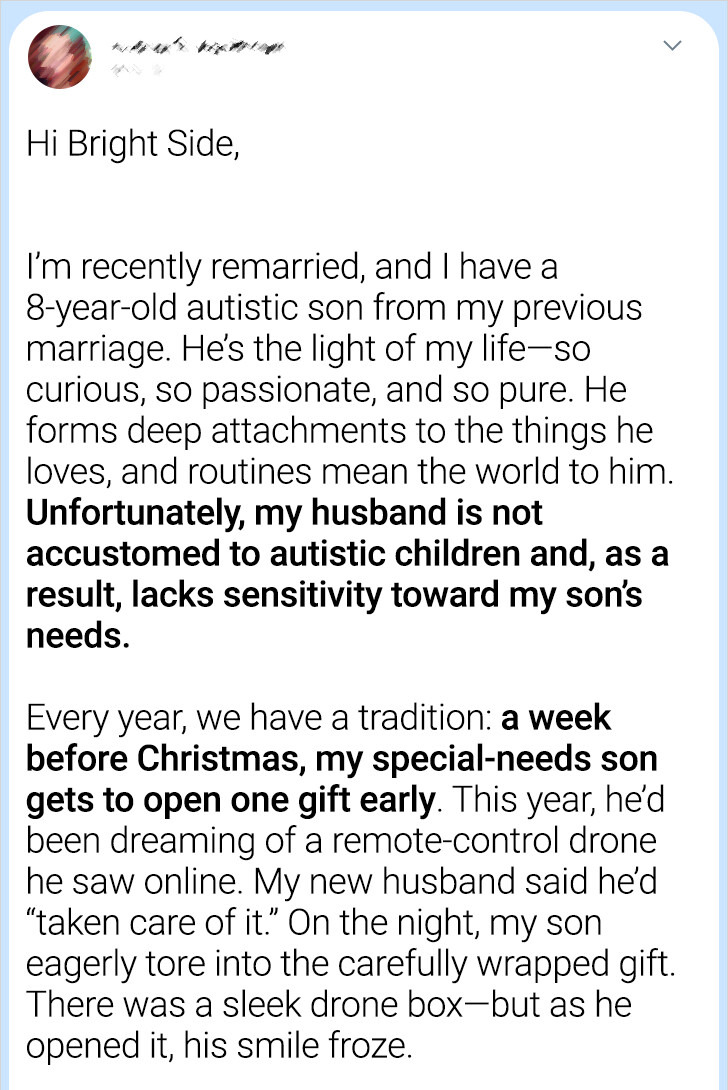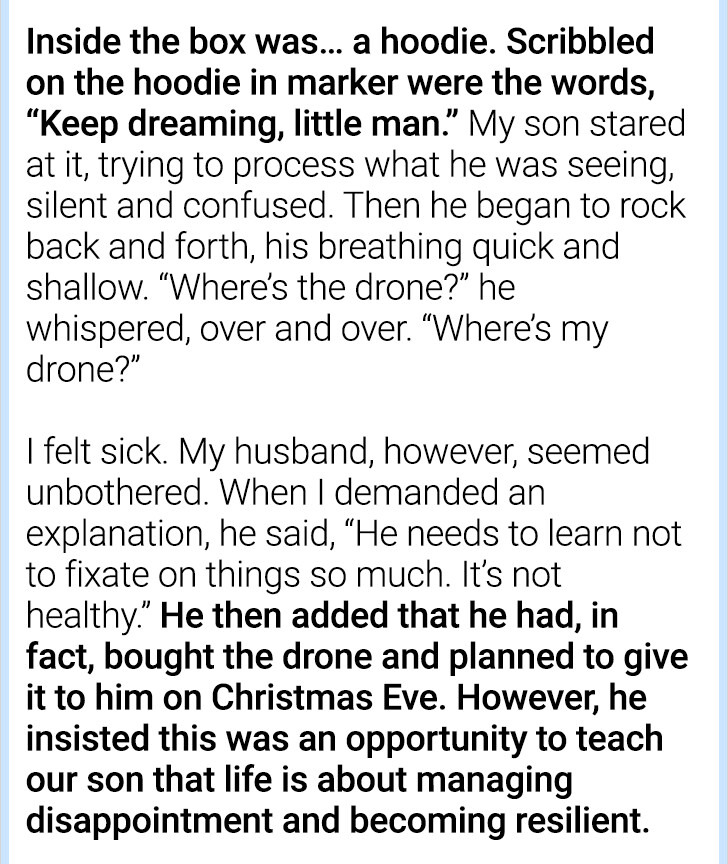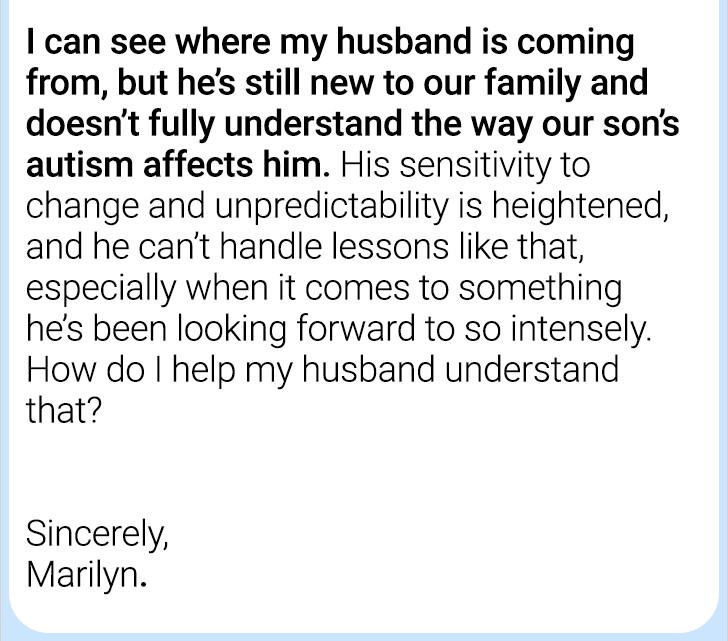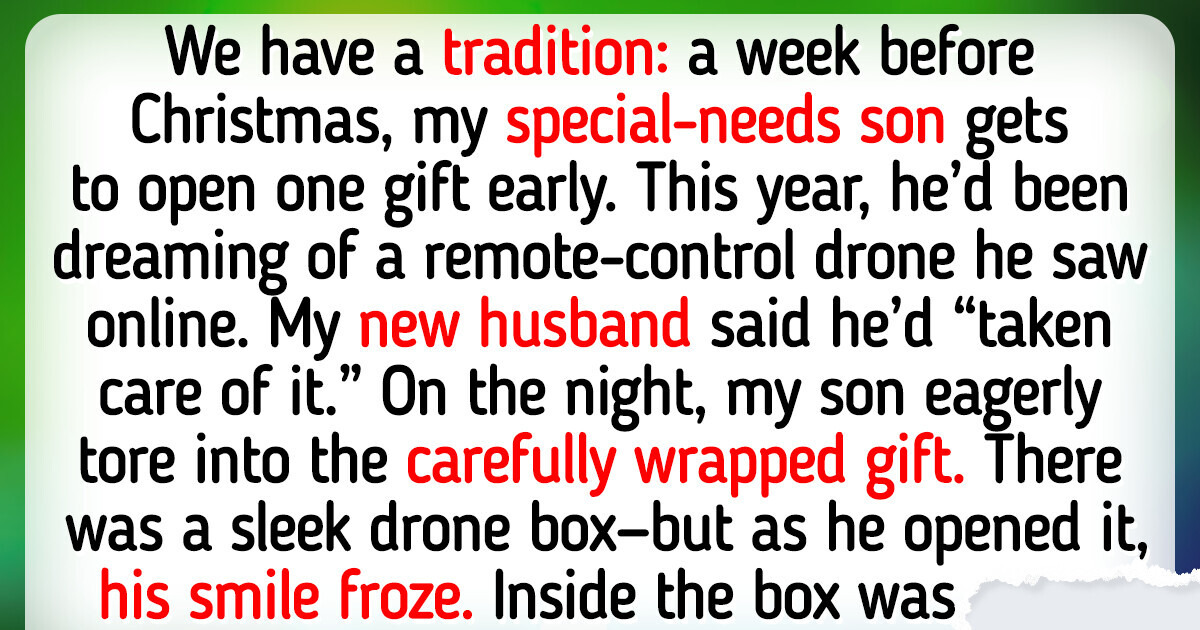My New Husband Played a Cruel Prank on My Autistic Son / Bright Side
The holiday season, full of joy and tradition, can be challenging for families with children on the autism spectrum, especially when misunderstandings arise. For children who thrive on routine, unexpected changes can cause distress. One reader recently sent a letter to Bright Side, seeking advice on how to help her husband, a new stepdad, understand her autistic son’s emotional needs after an unthoughtful gift-giving incident during the holidays.



Thank you, Marilyn, for sharing your story. To support you in handling this situation with your new husband and autistic son, we’ve gathered 5 pieces of advice.
Emphasize the Importance of Routine
When dealing with a child on the autism spectrum, routine is often a source of comfort and security. Gently explain to your husband that your son thrives on predictability, and any deviation from his expectations can be overwhelming. Rather than seeing your son’s attachment to his gift as fixation, present it as his way of processing joy and looking forward to something positive.
Help your husband understand that for your son, the anticipation of the drone was a big part of his holiday experience, and disrupting that caused emotional distress. Suggest focusing on how to honor that routine in a way that includes everyone’s comfort.
Educate About Autism Sensitivity
Explain that children with autism have heightened sensitivity to emotional stimuli, including disappointment and unpredictability. Your husband may not fully grasp how deeply these feelings affect your son, especially when it involves something he’s excited about. Acknowledge your husband’s intention to teach resilience, but clarify that for your son, the priority is managing anxiety rather than the lesson in disappointment.
Encourage him to take small steps in learning how autism influences behavior and reactions, perhaps by reading or attending a seminar together. This can help your husband approach the situation with more empathy and understanding.
Find a Balance Between Expectations and Reality
It’s important to balance expectations of behavior with the reality of what your son can handle. While your husband’s intention to teach resilience is valid, it’s essential to recognize when it’s too much for your son. Try explaining that resilience isn’t always learned through disappointment, but by gradually building confidence in a safe environment.
Suggest that your husband start with small, controlled opportunities for your son to experience minor disappointments in ways he can handle. This can build resilience in a way that doesn’t overwhelm him or lead to emotional distress.
Work Together on Gift-Giving Traditions
Discuss with your husband how to handle gift-giving traditions in a way that aligns with your son’s needs. Propose that they collaborate in the future to ensure that gifts reflect your son’s interests and routine, with a focus on his emotional comfort. This is an opportunity for your husband to participate in making the holiday special for your son, but in a thoughtful way.
Maybe your husband could get involved in the process of selecting the gift, ensuring it’s something your son can truly enjoy without confusion. Working together in this way helps reinforce the importance of teamwork in a blended family.
Offer Support and Patience as a Stepfamily
Navigating a remarriage with children, especially when autism is involved, requires patience from everyone. Encourage open conversations with your husband about the difficulties of blending families and the need for flexibility in how things are approached. Remind him that being a stepdad comes with a learning curve, and he will need time to fully understand and adapt to your son’s needs.
Offer reassurance that, with time and understanding, he can help create a positive family dynamic. It’s essential to approach these moments with compassion and a willingness to learn together as a family.
Follow this link to read the heartwarming story of a single gay dad who adopted an autistic child and raised an honor student.






